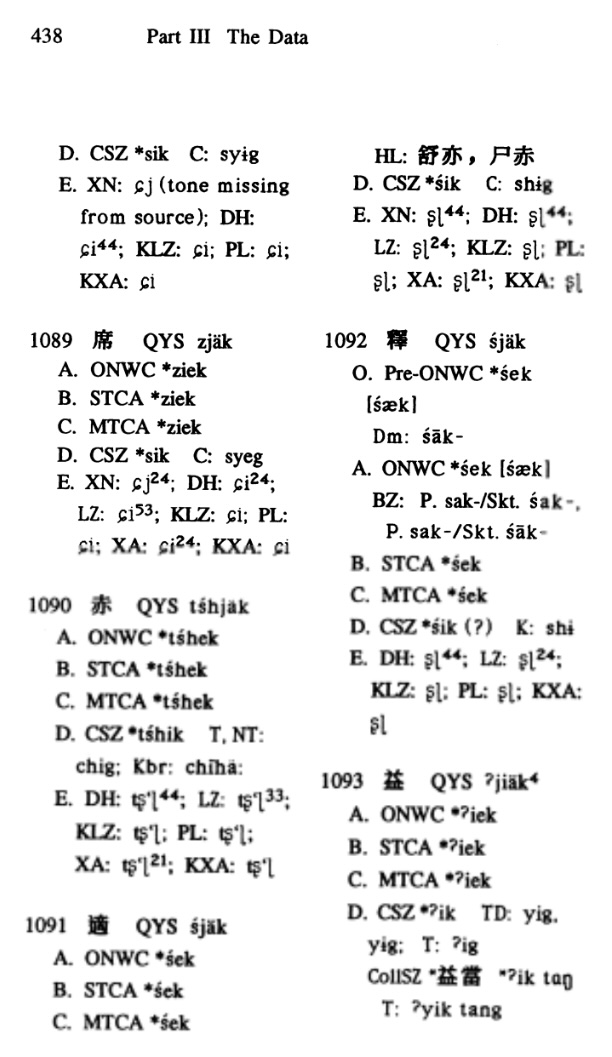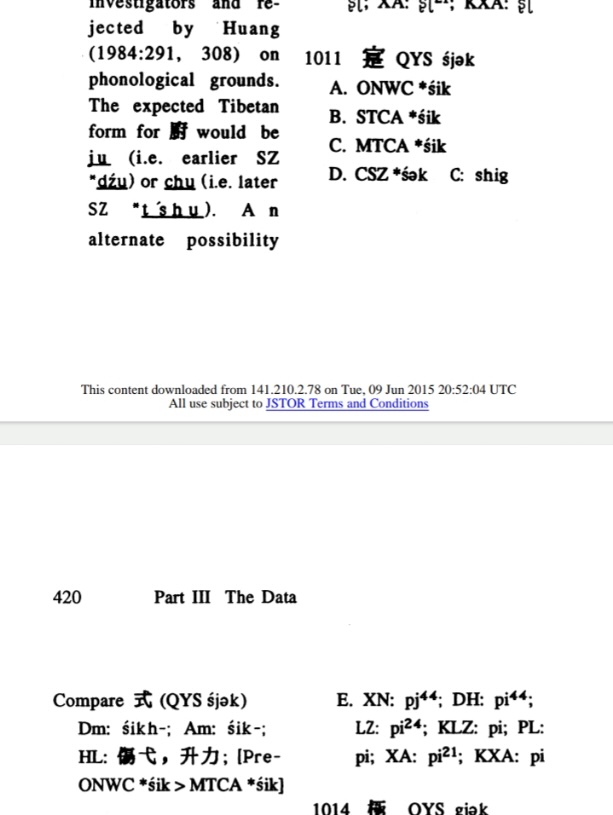Reversibility
« previous post | next post »
[This is a guest post by Mok Ling]
Someone asked me why shìhé 適合 ("to suit") and héshì 合適 ("suitable") aren't exactly reversible. [VHM added the romanizations and parenthetical definitions for those who do not know sinographs. Ibid. below.] A quick search online got me this explanation:
"They [適合 and 合適] mean more or less the same thing, but the former is a verb, while the latter is an adjective." (Chinese Grammar Wiki)
I could not figure out why this is the difference they find. Both the Wiktionary and Baidu entries for 適合 give 合適 as a synonym and vice versa.
Giles' Chinese-English Dictionary has neither word, but does have héshì 合式 ("suitable") under both 合 (3947) and 式 9948. The spelling with 式 is also considered a variant form by DeFrancis.
For what it's worth, my own intuition tells me that they're not wholly interchangeable either. A piece of clothing or a colour can be 合適/適合 (as a stative verb), but for an utterance like "wǒ bùshìhé zhège gōngzuò 我不適合這個工作" ("I'm not suitable for this job"), only 適合 makes sense.
My take is that the underlying word that is today spelt ⟨合適⟩ is actually {合式}, which is why 適合/合適 are not reversible. Both 式 and 適 are in the Entering tone and are homophones in Mandarin, Cantonese and Hokkien, despite being classed in different MC rime groups (式 under 職, 適 under 昔). Perhaps the confusion happened after the two groups had merged.
I have not had the opportunity to check a corpus just yet, so these are all shots in the dark. Hopefully I don't sound like a crazy person.
I realize tracking it in this way is not as useful as an actual corpus study (not sure where to even begin looking) but I'm trying to trace generally where 式 and 適 merged. It had to have been before Yuan since the Phags-pa spellings were identical and 中原音韻 gives it a 審 initial with 齊微韻.
Coblin's A COMPENDIUM OF OLD NORTHWESTERN CHINESE (1994) containing his reconstruction of several Chinese varieties of the Sui-Tang era has these 2 entries for 式 and 適 (see attached screenshots), showing some overlap in the phonetic transcriptions from that era.
Selected readings
"The Reversal Curse" (9/27/23)
"Rime / rhyme tables / charts" (4/10/25)
"Rhymes" (12/8/09)


Jerry Packard said,
August 27, 2025 @ 9:12 am
The Chinese grammar wiki provides the result that shihe 適合 is a verb and heshi 合適 is an adjective (stative verb) because of their privileges of occurrence. That is, 適合 can take a direct object but 合適 cannot, therefore 合適 is an adjective. (A common test for adjective/stative verb part of speech is modification with an extent modifier like 很 hen or 太 tai, but that doesn’t solve the problem here because the extent modifier can modify either 適合 or 合適). So the author’s intuition comports with this analysis because they're not wholly interchangeable. Whether they mean the same thing is a harder question to tackle, because it is hard to find a real test for synonymy that does not involve privilege of occurrence.